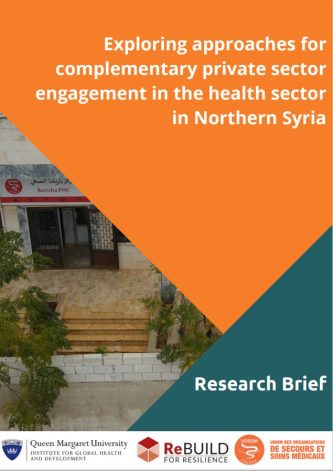
Exploring approaches for complementary private sector engagement in the health sector in Northern Syria
In the absence of state institutions and a decrease in humanitarian assistance, unmet health needs in Northern Syria are increasing. Sustainable and long-term approaches are required to ensure that equitable, accessible and quality health care continues to be available.
Previous assessments reported the existence of a for-profit private sector healthcare in the region which contributes to health service delivery. However, no research study has explored the role of the private sector, the dynamics of private sector engagement within the health system, and the potential impact on health system goals.
This research project sought to provide insights into the scale and scope of the private sector in the region and its impact on health system objectives such as equitable accessibility of services and quality of care. Read this research brief here.
There’s more on this study, including other outputs, here.
About the research team
The study was conducted by ReBUILD for Resilience team members from the Institute for Global Health and Development at Queen Margaret University in close collaboration with Union des Organisations de Secours et Soins Médicaux (UOSSM) France [opens new tab], which is the main funder of this research, and MIDMAR [opens new tab], which is the research partner in North West Syria.